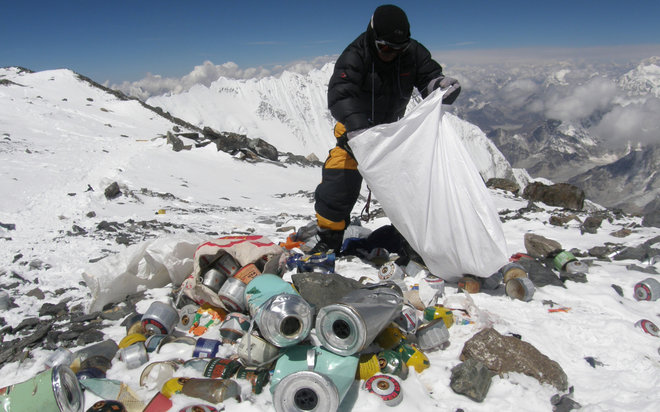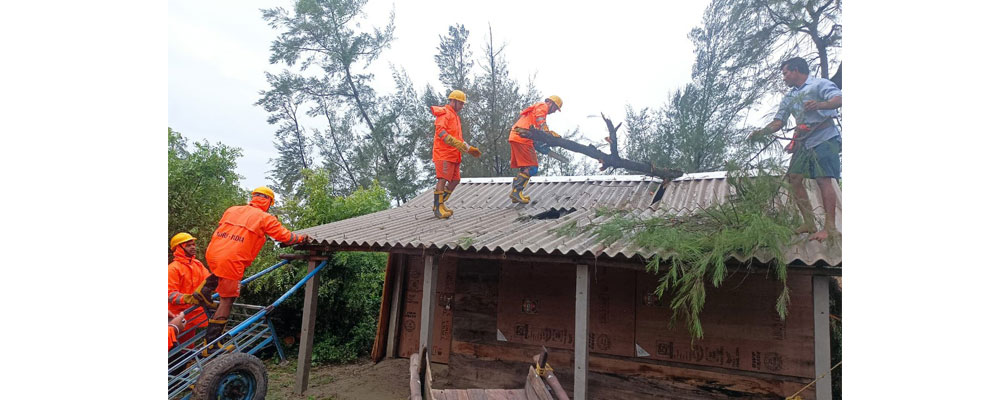Nepal is turning Everest trash into treasure

Xinhua— In a bid to save Mount Everest from trash, Nepal conducted a month-long cleaning campaign and collected around 10,000 kg of rubbish from the region.
For the mega clean-up drive, government and non-government agencies, along with a dedicated Sherpa team, not only brought the litter down but also removed four dead bodies from the roof of the world, Xinhua news agency reported on Sunday.
Instead of sending the solid waste straight to the landfill near Kathmandy, the items were segregated, processed and recycled as raw materials for various products. “We segregated the collected materials in different categories such as plastic, glass, iron, aluminium and textile. Of the 10 tonnes of waste collected, two tonnes have been recycled. The remaining eight were soil mixed with wrappers and semi-burned items, which could not be recycled,” Nabin Bikash Maharjan, the head of Kathmandu-based Blue Waste to Value, a social enterprise, said.
Besides recycling the waste, Mr. Maharjan’s team is also working with municipalities, hospitals, hotels and different offices to maximise value from waste by recycling, reducing the amount of waste sent to landfills and by creating green jobs.
To make the campaign more effective, the company suggested authorities to set up an initial processing unit in the mountain area itself, so that waste can be segregated immediately and easily managed.
Selling products online
Though the company does not recycle the materials itself, it collaborates with another firm called Moware Designs to create up-cycled glass bottle products and to sell them online.
Ujen Wangmo Lepcha from Moware Designs said that glass products are trendy and useful for homes home, offices, restaurants and hotels. They are used as decorative items as a flower vase, candle cover, plates, travel cups, regular drinking glasses or as an accessory.
These products, which range from 350 Nepalese rupees to 2,000 Nepalese rupees ($3 to $18), are bacteria free as they are sterilized. These glass items have also been a means of livelihood for local women who shape them into trendy designs.


















Facebook Comments